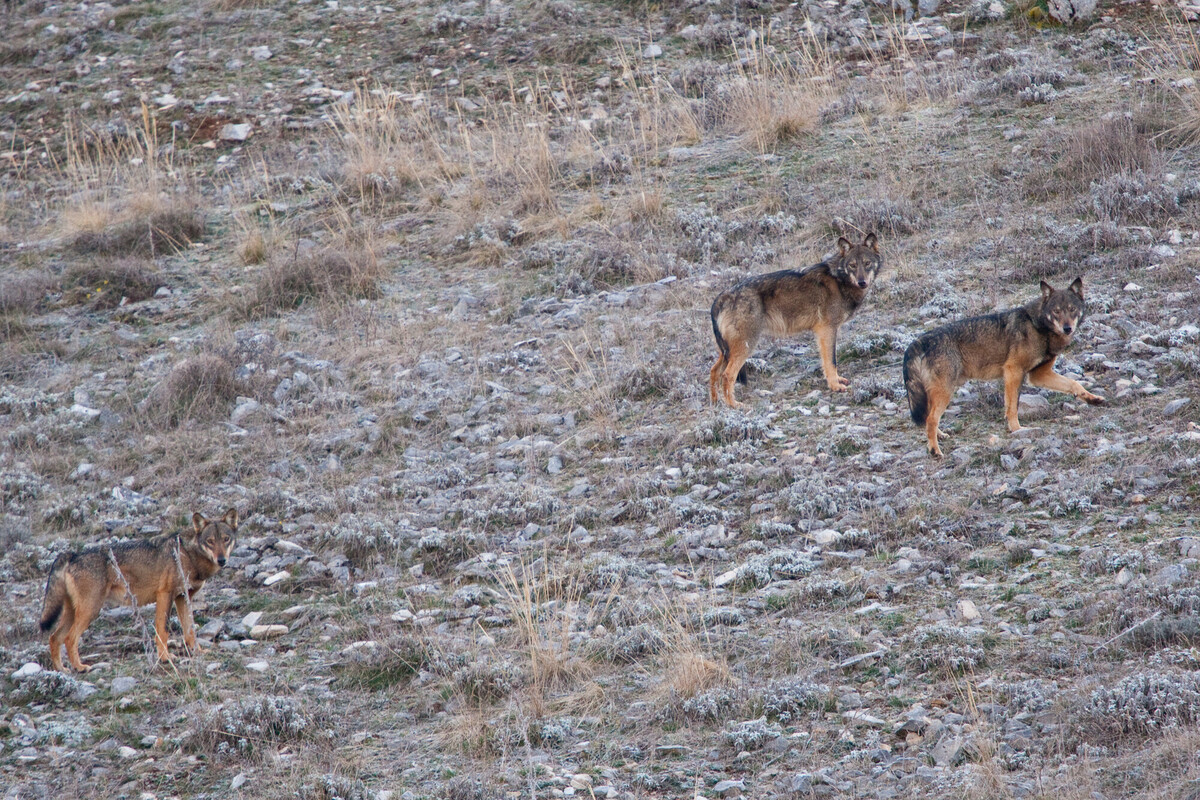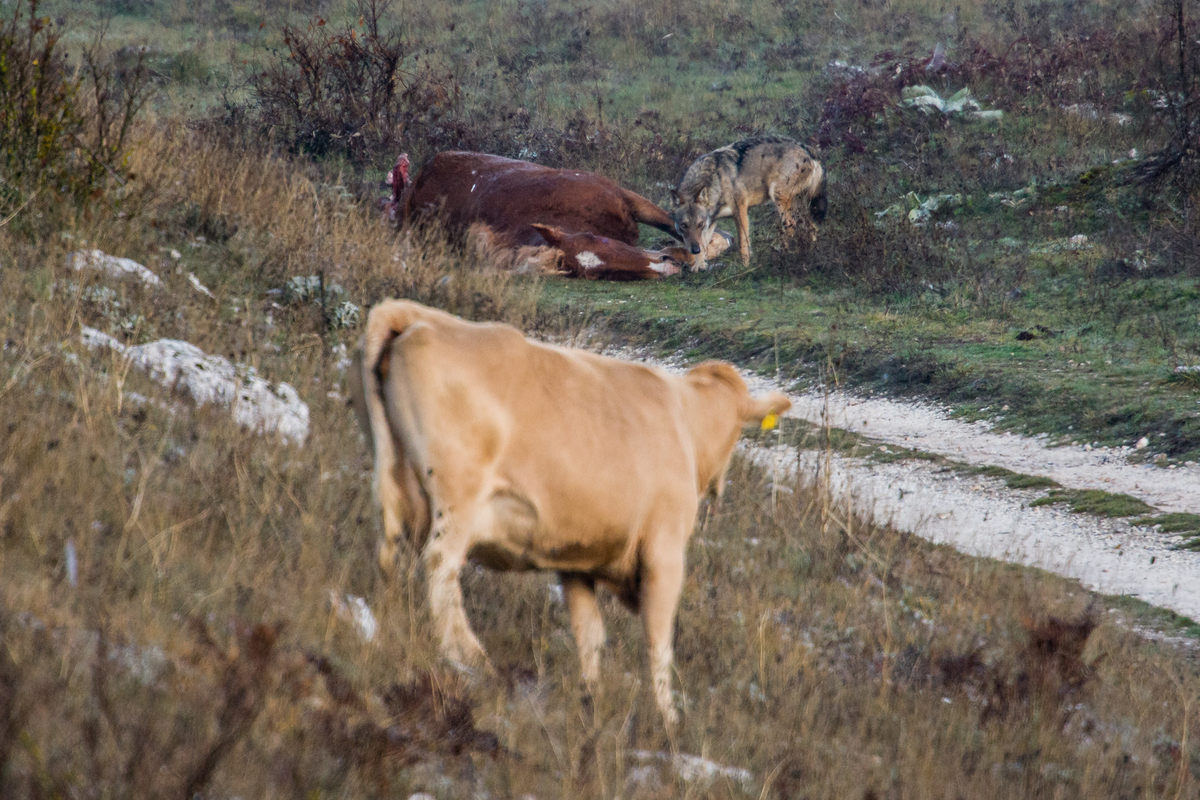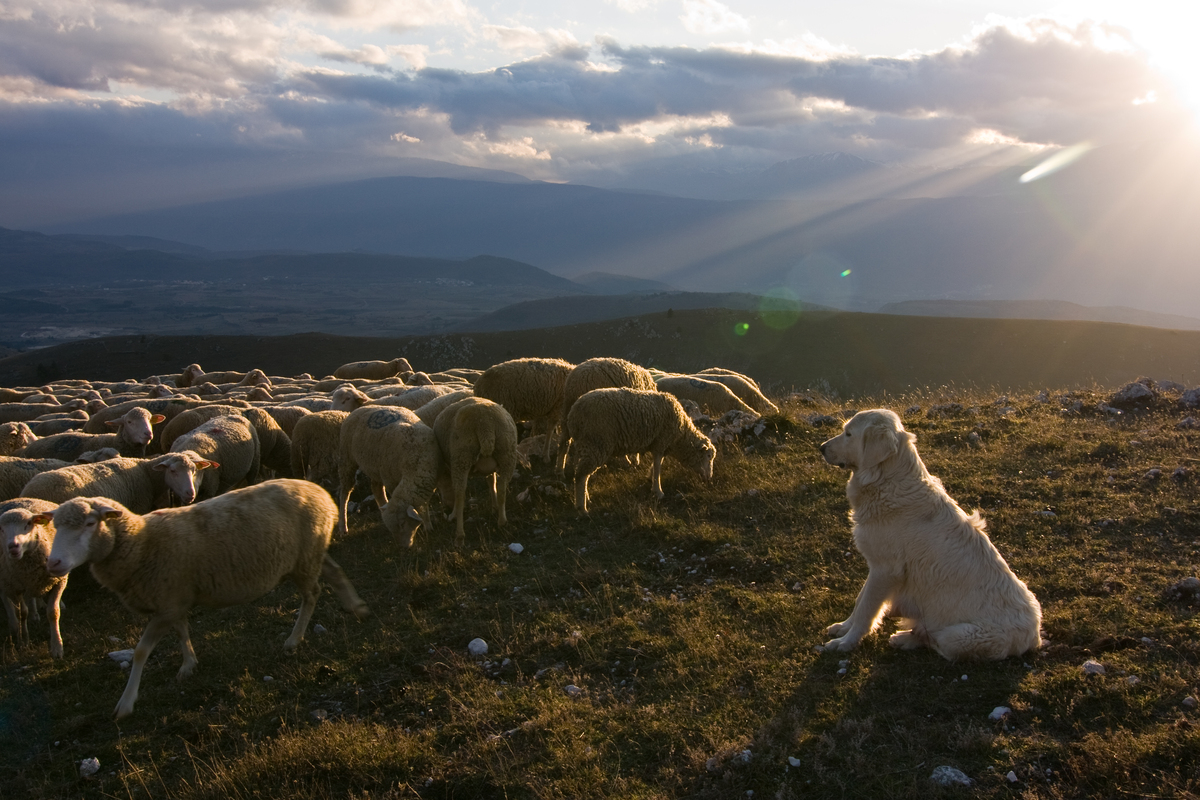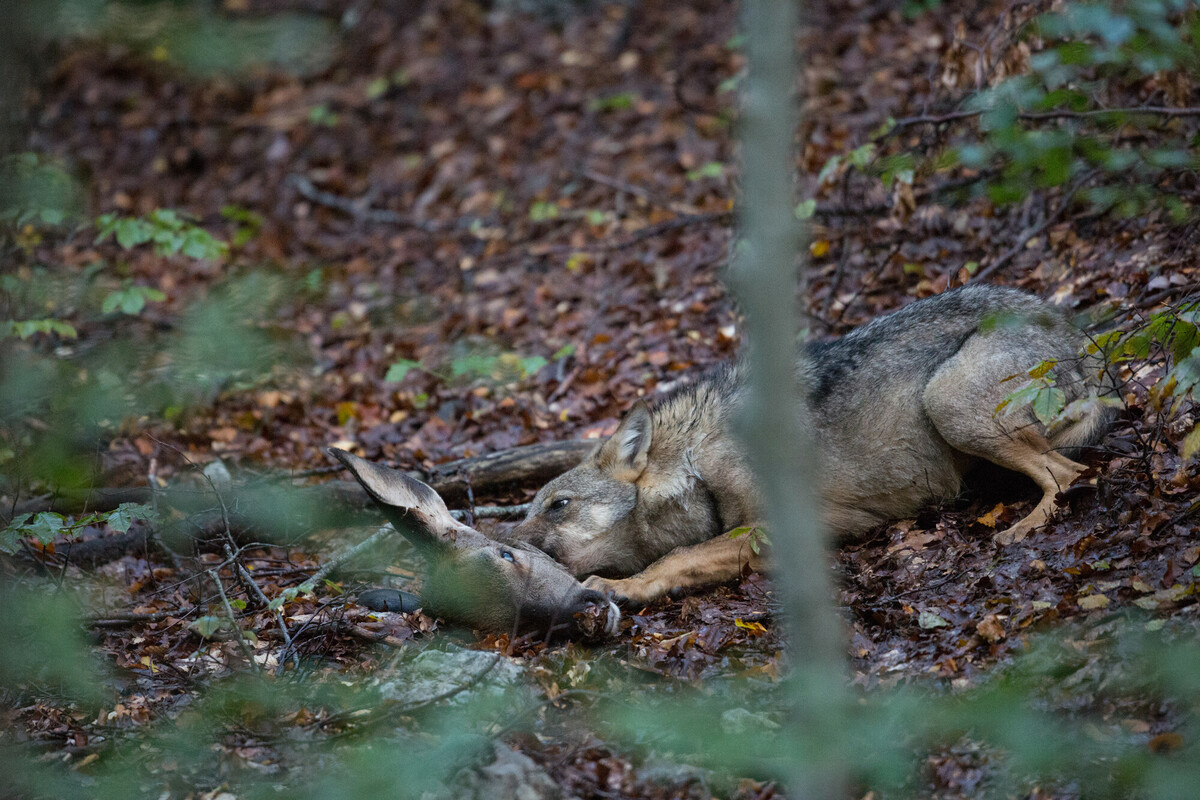After the European Commission announced plans to review the protection status of the wolf, a huge movement of institutions, NGOs and private citizens throughout Europe and beyond coalesced to inform that this is a wrong decision and took action to avoid it. These are Rewilding Apennines’ reasons – delivered to European Commission and President Von der Leyen – why the protection of the wolf, instead, should be kept high.

September 22nd 2023
Dear President von der Leyen, dear European Commission,
Rewilding Apennines wants to express their deep concern about the latest discussions to reduce the status of protection of the wolf in the European Union and the recent claim of the European Commission about this species.
Aware of the crucial role of apex predators for the healthy functioning of the ecosystems, we believe that the European Commission should invest financial resources on the improvement of the biodiversity, not to attack one of the main players in keeping sane environments because of the impact on some livestock breeding and hunting activities. We know that the Commission supports agriculture and farming with several financial tools. The most relevant one, the Common Agricultural Policy (CAP) allocated € 387 billion in funding for the years 2021-2027, while the Commission funds actions to support biodiversity through the LIFE programme for just € 5.4 billion (1.4% of CAP) for the same period. This gap cannot be aggravated by reducing the status of conservation of a species which is the main icon of the wild, part of the natural and cultural heritage of all Europeans, but we would expect a major coordination between the two funding programmes to guarantee both livestock breeding and wolf conservation, instead of exacerbating conflicts by starting culls.

In fact, as well as it is proven that death punishment does not reduce murders, a cull of wolves does not guarantee a reduction of damage to livestock, unless the objective is the full eradication of wolves, which would mean a blind return to the past, an utter demonstration of incivility and intolerance we hope the EU does not want to support. Moreover, culls and hunting quotas may increase illegal killings, especially if there is a lack of police control in wild areas for their difficult accessibility and shortage of funds (and sometimes willingness) from local authorities.
Is a regular bloodshed the model of living and managing wildlife that the EU governors are promoting? Is this the legacy we want to pass on to the future generations: making some sectorial economic interests prevail on biodiversity conservation at the expense of the wolf and the rest of the European citizens?
After having rehabilitated the reputation of this noble animal, are we Europeans replicating the mistakes of the past vilifying the fame of the wolves to justify their “containment” or destruction? Is economy always directing political, social and ethical choices?
As Rewilding Apennines has experienced in these years by finding several dead specimens, wolves are already killed both illegally by poisonings and poaching and accidentally by collisions with vehicles. Instead of solving this issue reducing their protection, the EU should encourage and financially support all actions aiming to prevent and repress poaching and mitigate risks of vehicle-wildlife collisions, which are underestimate threat to biodiversity as a whole. Bespoke funds could be allocated to livestock breeders to compensate for damage from wolves, even before they occur as a kind of “coexistence-with-the-wolf fee” at the condition that no illegal activities are reported, or incentivize farmers who are successfully adopting “wolf smart” best practices instead of pleasing people who do not believe in any forms of coexistence encouraging them to pull a trigger or arm a trap.
NGOs, some protected areas, and other illuminated local authorities are providing electric fences, guardian dogs and even volunteers to support breeders in wolf proof measures. When properly implemented, damage preventative devices prove extremely useful as Rewilding Apennines and their partner organisation Salviamo l’Orso can demonstrate after having installed about 400 electric fences in the Central Apennines of Italy, mostly on own resources, to prevent damage from bears and wolves. However, these tools should be complemented by education on wolf-human coexistence in schools and towns. The Commission should invest in training livestock breeders and hunters on wolf ecology and ethology encouraging exchanges of experiences between breeders and hunters who are implementing best practices of human-wolf coexistence and those who struggle to adopt them maybe because the wolf has just recently settled in their landscape, turning them into wolf ambassadors instead of competitors.

There is a huge knowledge that we humans can acquire by coexisting with large carnivores. As apex predators they can detect the fallacies of our way to live with and in nature. They can show us how unsustainable is our way to breed livestock if we need a total human-dominated landscape to do so, how imperfect is our way to manage waste if it attracts wildlife into inhabited settlements or free-roaming dogs if they cause damages – often more serious than wolves – and may cause hybridization with wolves. Is the European Commission willing to renounce to this knowledge and cull the sentinel of those fallacies because uncapable to resolve them? Is this the way to address challenges in our supposedly civilised societies?
Unless we recognise that the wolf populations have increased in a way that could be unimaginable few years ago, this shows the great resilience of the species and European habitats and how a history of difficult coexistence can be turned into a conservation success if we also acknowledge wildlife their own right to thrive.
As all fanged animals, it is true that wolves can be potentially dangerous for people, although the risks of predation over humans is extremely low even compared to livestock animals. This does not justify the fears that some people, who are against wolves for personal interests, are spreading about these animals.
Moreover, the risk of being attacked by wolves can be furtherly reduced by awareness campaigns – directed to the citizens and the press, which often mystifies facts to depict the evil wolf – and not by stirring people against this animal which provides us with irreplaceable ecosystem services such as keeping wild ungulates populations in balance and in a more efficient way than hunters, whose interest is often make wild ungulate populations boom for their own benefit, colliding with farmers’ needs.
Moreover, professional staff should be employed to manage conflicts with large carnivores with the precise purpose of paving the way for coexistence, creating the conditions for the welfare of people and animals.
There is a wildlife watching economy that its benefitting from the presence of the wolf. This should prove that “problems” can be turned into resources with many fewer negative externalities than other more impactful, in term of ecological footprint, such as livestock breeding and hunting.

We cannot believe that the European Commission wants to take positions against wolf conservation and all those activities we have mentioned in this letter that state that living with wolves is possible and even more beneficial to the environment and ourselves than living without the wolf or with a population of wolf which is (furtherly) managed.
We hope that the EU Commission will change their approach on the wolf and create opportunities to coexist instead of competing.
Best regards,
Mario Cipollone, Team Leader
and the Rewilding Apennines team